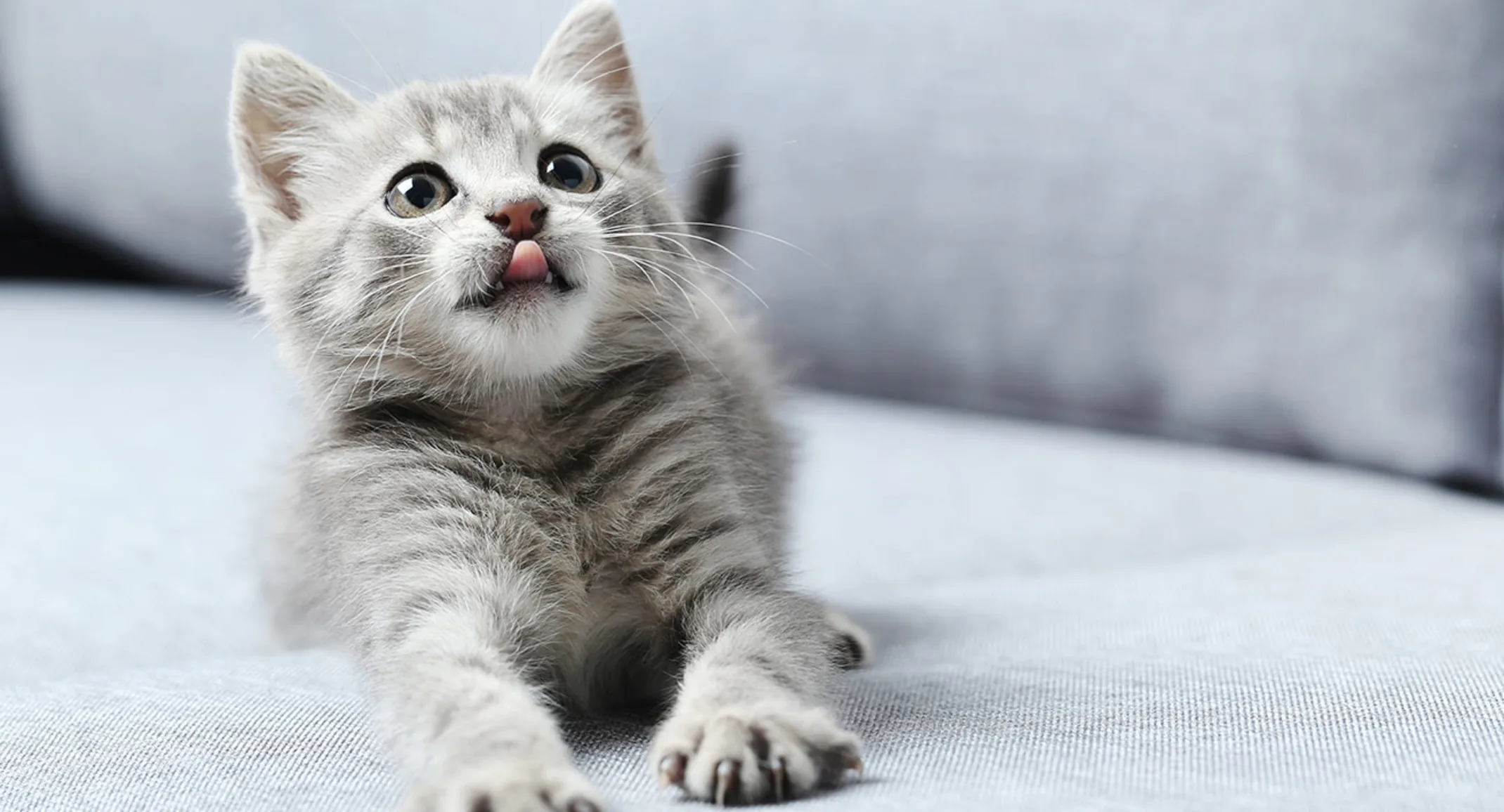Cat Drooling: What is Causing It?
Cats

Have you ever seen a cat drool?
Cats can drool just like dogs do but sometimes for different reasons. Also, cats don’t usually drool as much as dogs do, so if your cat is drooling excessively, there may be a problem. How can you tell if your cat drooling is an issue and what is causing it in the first place? After reading this article, you will be able to identify what is causing your cat to drool and if it is a problem.
DO CATS DROOL WITHOUT HAVING HEALTH CONDITIONS?
There are plenty of cats that drool for completely normal reasons. An important thing to understand is that most cats with drooling behaviors have them almost all their lives. This matters because you can’t train a cat to stop drooling. It’s also necessary to remember because if you’ve had your cat for a while and they start drooling out of nowhere, and you may often want to take them to the veterinarian to make sure nothing is wrong. It isn’t normal for a cat to start drooling behaviors later in life, but it has happened on rare occasions.
WHAT’S NORMAL DROOLING BEHAVIOR FOR CATS?
It’s normal for cats to drool for positive reasons. Some dog breeds often drool due to their breeding, but this isn’t true for cats. Any cat of any breed can be a drooler, and it is a behavior that is stimulated by external things instead of something that just happens whenever.
CONTENTMENT
One reason many cats drool is due to contentment when they are kneading or purring. Cats will often drool during this time because of an association with nursing. When a cat kneads, they are performing a kitten behavior that usually doesn’t go away in adulthood. Kittens knead their mother’s stomach to stimulate the flow of milk and may purr and even drool with anticipation of their meal. Most adult cats will knead and purr when they are happy, and sometimes this drooling behavior goes along with that. This is the most common reason for cats to drool.
FOOD
Some cats will also drool due to food. If your cat seems to drool only when they see their food or smell their food, it is probably related to this. Cats who are known for this behavior may even drool when they hear the container of their food moving or a can opener. For cats that eat wet food out of a can, they are known to associate any can or can opener with their own food and may bombard you when you’re just opening a can for yourself.
STRESSED OR FEARFUL
There is one reason cats drool usually that isn’t for a positive reason. Some cats will drool when they are stressed or afraid. Cats who have had trauma may experience a form of PTSD. When anything brings up that trauma, they may have a habit of drooling out of stress or fear. If your cat is drooling from pervasive anxiety or fears, you should try talking to your veterinarian about ways to manage their stress. Animals that live with more stress than they should are known to live shorter lives.
CAT DROOLING SYMPTOMS TO WATCH FOR
While cats may drool for issues that don’t require medical attention, there are also other causes that might. If your cat has never drooled before but started out of nowhere, there are some signs you want to be on the lookout for to make sure it isn’t something serious.
Signs drooling may be more serious:
Vomiting
Lethargy
If your cat is experiencing any of these symptoms along with drooling, you should take them to a vet right away to determine if there is a serious condition causing these.
WHAT HEALTH CONCERNS COULD BE CAUSING MY CAT TO DROOL?
There are some serious health conditions and issues that may be causing your cat to drool. If your cat seems to be drooling for no reason that is apparent to you and you’ve never seen them drool in the past, you should be careful to note if they have any other symptoms to go along with the drooling.
DENTAL DISEASE
Dental diseases may cause cats to drool and cause them quite a bit of pain. Dental disease symptoms include difficulty eating, blood in the saliva, frequently dropping food while they are eating or having trouble picking food up with their mouth and chewing their food with their head tilted to the side.
UPPER RESPIRATORY INFECTIONS
Upper respiratory infections can also cause cats to drool. Other symptoms of this health condition are sneezing with nasal discharge, eye discharge, and a change in appetite or drinking habits.
NEUROLOGICAL DISORDERS
Neurological disorders are the most serious reason why a cat may drool. The symptoms of a neurological condition in a cat are difficulty picking up food, issues with chewing, difficulty controlling tongue movements, a problem with balance, and overall body weakness. If your cat appears to have this issue or any of the others mentioned above, it’s vital to take them to the vet to be diagnosed and treated as soon as possible.
TALK WITH YOUR OLD DERBY ANIMAL HOSPITAL VETERINARIAN
Yes, cats can drool. Some drool for perfectly normal reasons like being content or excited about food. Some have a little more underlying worry and drool due to mental distress. Unfortunately, if your cat starts drooling out of nowhere, it is most likely caused by a more severe issue that needs to be diagnosed and treated by a vet. Pay close attention to your cat, and you will be able to find out why they are drooling and if it is a problem or not. To talk with your veterinarian about cat drooling call Old Derby Animal Hospital at (781) 749-2800 or book an appointment online.
